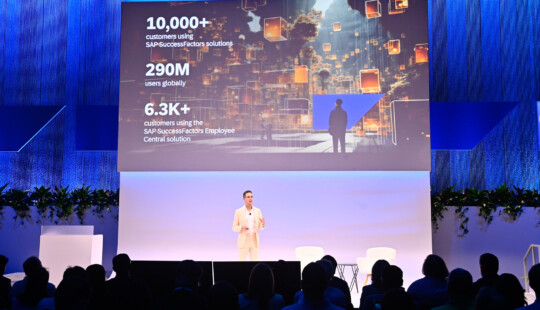WALLDORF — The number of decision-makers in human resources (HR) who say employee experience (EX) is the most important aspect of their HR strategy has nearly tripled over the last two years.
The results were published in a new study from Forrester Consulting LLC commissioned by SAP (NYSE: SAP), Qualtrics, an SAP company, and EY. Likewise, budget for EX has almost doubled over the same time period, from 6% to 11% and is expected to increase to 16% within two years.
Employee experience is at an inflection point as organizations look to support an increasingly remote workforce while maintaining culture, flexibility and productivity. Still, most EX initiatives remain relatively immature, according to the “Close the Employee Experience Gap” study, which surveyed 900 HR decision-makers and 900 full-time employees. Organizational silos, lack of executive support, inconsistent measurement, dispersed data and misalignments between HR departments and employees leave room for improvement in creating EX initiatives that drive lasting change.
For example, only 24% of HR teams have an executive sponsor for their EX work, and 71% say it is a challenge to gather real-time information about employee experience. Only 17% of HR organizations say they track KPIs that reflect cultural strength. While 81% of employees believe creating and sustaining a positive culture is the most important aspect to creating good EX, only 58% of HR managers agreed. Furthermore, only 15% of employees expect excellent EX from their companies.
“Learning and training, diversity and inclusion and a culture that encourages people to bring their whole selves to the workplace are all part of the employee experience,” said Jill Popelka, president, SAP SuccessFactors. “Employee experience cannot be isolated to HR or solely focused on increasing productivity. It needs a holistic strategy driven by leadership and shaped by continuous feedback from employees.”
Despite existing challenges, the study confirmed that EX initiatives can drive immense benefits for the overall business. HR leaders said that EX initiatives have a positive impact on workforce agility (59%) and organizational agility (67%). Meanwhile, nearly 80% of employees said that EX initiatives improve their productivity and quality of work. This translates into increased revenue, according to the 77% of HR leaders who said that EX initiatives have increased revenue and the 61% who said they saw improved profitability.
Read the full study here and view the infographic here.
To learn more, join SAP and Forrester Consulting for a discussion about the study during the Human Experience Summit at 11:00 a.m. ET on February 18, 2021.
For more information, visit the HR and People Engagement area of sap.com and the SAP News Center. Follow SAP on Twitter at @SuccessFactors and @SAPNews
Media Contact:
Samantha Yerks, +1 (914) 918-6087, samantha.yerks@sap.com, ET
SAP Press Room; press@sap.com
Any statements contained in this document that are not historical facts are forward-looking statements as defined in the U.S. Private Securities Litigation Reform Act of 1995. Words such as “anticipate,” “believe,” “estimate,” “expect,” “forecast,” “intend,” “may,” “plan,” “project,” “predict,” “should” and “will” and similar expressions as they relate to SAP are intended to identify such forward-looking statements. SAP undertakes no obligation to publicly update or revise any forward-looking statements. All forward-looking statements are subject to various risks and uncertainties that could cause actual results to differ materially from expectations. The factors that could affect SAP’s future financial results are discussed more fully in SAP’s filings with the U.S. Securities and Exchange Commission (“SEC”), including SAP’s most recent Annual Report on Form 20-F filed with the SEC. Readers are cautioned not to place undue reliance on these forward-looking statements, which speak only as of their dates.
© 2021 SAP SE. All rights reserved.
SAP and other SAP products and services mentioned herein as well as their respective logos are trademarks or registered trademarks of SAP SE in Germany and other countries. Please see https://www.sap.com/copyright for additional trademark information and notices.



